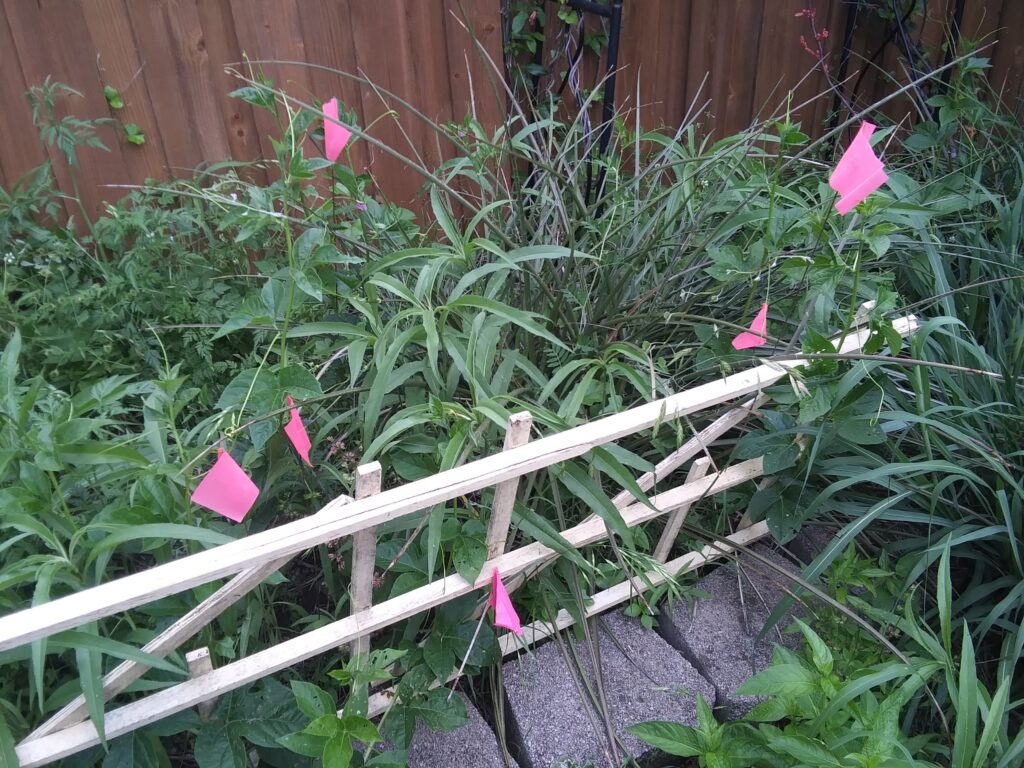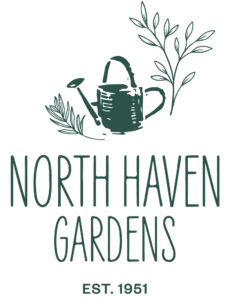When Good Plants Misbehave

The Dallas Morning News recently ran a Sunday New York Times crossword puzzle with the clue “Goldenrod”. The answer? “Weed”. Native plant lovers, horrified, might cry out “What?! This iconic wildflower of the prairie in the fall?! This stunning accent plant in a wildscape garden?! This vital food source for a host of pollinators and their larvae…a weed? Never!” Those gardeners who have grown goldenrod, though, might pause a moment point and think, “Hmmm… well… I can see where they’re coming from”. Two traits can account for why some plants – even some beneficial natives we all love – can go rogue in our urban gardens.
The first culprit is a growth structure called a rhizome, lateral underground stems that reach out in all directions and send up new plants. As they mature, these new plants send out their own rhizomes, which then mature, spread, and send out new plants until your garden is overcome. Not only do they spread aggressively, rhizomatous plants like goldenrod (Solidago spp.), ironwood (Vernonia spp.), and passionvine (Passiflora spp.) have an extra advantage: when you dig these plants to control them, you cut through the rhizomes and this stimulates a new plant to emerge wherever rhizomes were severed. Like trying to conquer the mythological Hydra, gardeners who attack one rhizomatous plant may be “rewarded” with multiple new plants growing in its place.
Another trait that makes for unruly garden plants is the ability to abundantly re-seed, and there’s no better example of this than inland sea oats (Chasmanthium latifolium). This lovely native is a striking addition to in an urban garden as well as a vital part of our creek corridors and river systems, with its network of roots that provide soil stabilization and elegant, drooping seed heads that are an abundant food source for wildlife and birds. Beware, though: if these seeds fall on the ground in your garden and mature then sprout over the winter, you won’t ever have to plant anything in your garden again: you won’t have any room.

Pink flags mark 6 stems of passionvine in a 2 ½’ x 2 ½’ area, all connected by rhizomes. 
A sea of Sea Oats (Chasmanthium latifolium)
An understanding these growth habits and which plants that benefit from them, combined with a sharp eye and a sharp shovel, can bring these bad boys under control. Rhizomatous plants can often be grown in containers; just be sure to put a saucer or other protection under any drain holes so that rhizomes don’t grow escape. If you do have to dig these plants, try to get as much of the rhizome as possible. With plants that re-seed, cutting off and throwing away seed heads before they mature is the #1 control technique. Constant vigilance is required: at the first sign of spread, dig up any plants you don’t want, then watch for further spreading. You can also research less-aggressive cultivars of some species. Your research and vigilance will be rewarded when beautiful and beneficial natives like goldenrod, passionvine, and inland sea oats become a well-behaved part of your garden.



